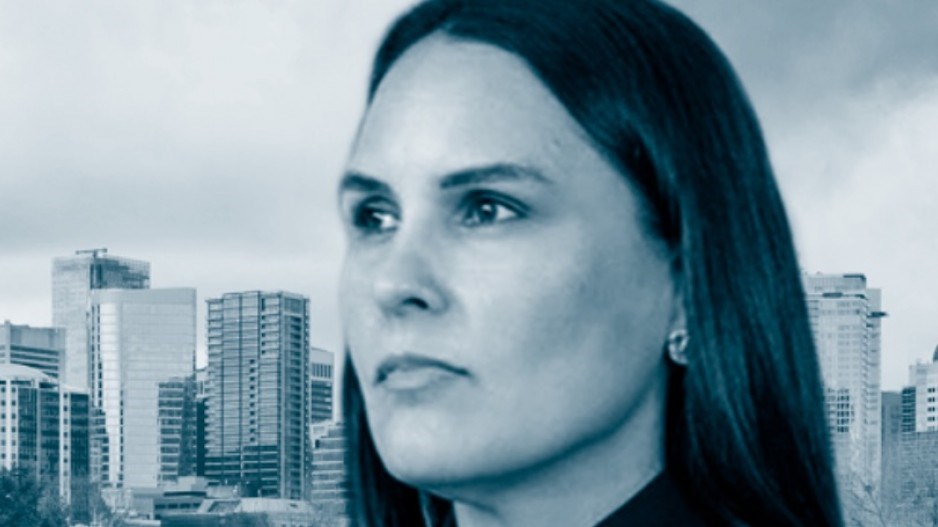I was 14 years old when I got my first job. It was selling T-shirts at a native art gallery for $5 an hour in the small town I grew up in. The shop was called Sa-cinn Native Enterprises and was owned by a Nuu chah nulth woman who was way ahead of her time in building entrepreneurial success. Little did I know as those high school summers passed in my first job how much I would be influenced by the leadership of Indigenous women in business and seeing success through entrepreneurship.
Reflecting back on this early experience of being mentored within an Indigenous female-led enterprise, what stands out the most to me is the resilience, hustle, leadership and perseverance I witnessed as a young person. At an early age, what was demonstrated to me daily was the value of business relationships, the value of money and responding to a changing business environment. I saw business as a vehicle and as an answer to the high unemployment rates and poverty within Indigenous communities.
What was also reflected to me was the courage, confidence, personal excellence and tenacity to succeed in business. I eventually obtained my MBA and undertook a pathway in Indigenous business which has allowed me to be a business owner for over 15 years. Today, I have founded the Indigenomics Institute and am leading the narrative of the emerging national $100 billion Indigenous economy.
Within the achievement of this $100 billion Indigenous economic target, Indigenous entrepreneurs must play a central role. With a growing army of Indigenous entrepreneurs of which there is an increasing number of Indigenous women-owned-and-operated businesses, the space for the Indigenous woman entrepreneur is emerging with strength, dignity and pride.
The National Aboriginal Capital Corporations Association completed a research project on Indigenous women’s entrepreneurship. This early research demonstrated that while Indigenous women make up 51% of the Indigenous population, they only account for 41% of the self-employed Indigenous population in Canada.
However, the report demonstrated that the number of Indigenous women entrepreneurs is growing, and at a higher rate than Indigenous men entrepreneurs. The growth rate between 2011 and 2016 was 46% for self-employed Indigenous women, compared to 37% for self-employed Indigenous men.
Let’s look at some Indigenous women entrepreneurs in the regional Indigenous business scene. Inez Cook is an entrepreneur extraordinaire from the Nuxalk Nation is the co-founder of the well-known restaurant Salmon n’ Bannock, a local Vancouver favourite focused on Indigenous cuisine. Salmon n’ Bannock has made its place on the Vancouver culinary scene, showcasing authentic Indigenous cuisine while hiring Indigenous employees. It celebrated its 10th year in business this past spring. This is Indigenomics.
Joleen Mitton is of Plains Cree descent and comes from a career in international modelling. She is the founder of the first-of-its-kind Vancouver Indigenous Fashion Week – a company that produces Indigenous fashion shows with clothing designed by local Indigenous designers and worn by young models of Indigenous descent. As a first mover in this space, Mitton’s passion and leadership have been about bringing Indigenous fashion to the forefront and inspiring and engaging Indigenous youth.
Rory Richards, founder and president of Nuqo, is of Coast Salish (Shíshálh) descent. Nuqo is an Indigenous-owned business that distributes high-quality European steel modular construction. Richards says that: “As an Indigenous entrepreneur it is important for me to apply a generational lens. How are my decisions today going to affect future generations? Is what I am doing sustainable? Is this reflective of my values? Is it creating a space for others to achieve? Simply identifying myself as First Nations is the most important thing I can do so that others can quietly confront their inherited judgements and perceptions of First Nations people and for other young women to see that there can be a seat at the boardroom table for them.”
Rocio Zielinski, general manager of Sto:lo Community Futures, notes that “out of the 315 Indigenous-owned businesses we have identified to date in the S’olh Téméxw, the Stó:lō Traditional Territory, 25% of these are 100%-owned by Indigenous women. Fifteen per cent of the 315 businesses are Indigenous women in a partnership ownership structure.”
Lastly, trailblazer and retired CEO Ruth Williams is a successful business woman from Big Bar First Nation whose early leadership established the All Nations Trust Company. The company focused on achieving increased self-sufficiency through capital financing, which – when started in the 80s – began with only $339,000 in capital. It now manages over $60 million. Today, deploying $60 million of financing to Indigenous business is an essential component of the investment tools and strategies needed for Indigenous economic success. This is Indigenomics.
This is a time of significant increase in the number of Indigenous entrepreneurs. It is time to bring into visibility the role of Indigenous women in business and the experiences of their growing success. •
Carol Anne Hilton is CEO and founder of the Indigenomics Institute.




